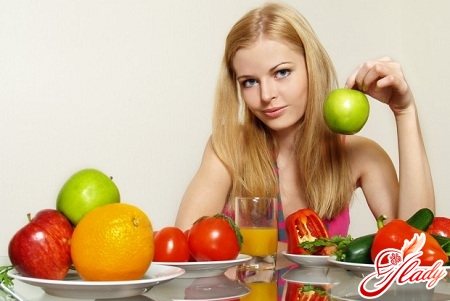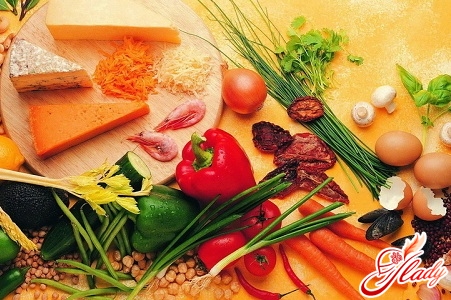 Vegetarianism: pros and cons.This eternal debate has existed for as long as the phenomenon itself. Who is right and who is wrong? It is very difficult to give a clear answer to this question, so we will simply tell you about the positive and negative aspects of vegetarianism. And the decision, of course, is yours.
Vegetarianism: pros and cons.This eternal debate has existed for as long as the phenomenon itself. Who is right and who is wrong? It is very difficult to give a clear answer to this question, so we will simply tell you about the positive and negative aspects of vegetarianism. And the decision, of course, is yours.
Vegetarianism and its varieties
Let's try to figure it all outorder. What is vegetarianism? Are those who avoid vegetarianism, against which there are a thousand arguments, really right? The word "vegetarian" has English roots and is translated as "plant", "vegetable". Vegetarianism is a diet that is characterized by the refusal to eat the flesh of any animals. There are several types of vegetarianism, of which the "strictest" is considered to be strict vegetarianism, which includes the refusal to eat both animal meat and products that animals produce (milk, eggs). The position is very ambiguous - there are jokers who say that vegetarians are those people who do not eat animals. But they "eat" them, creating serious competition for animals in eating their food: grass, vegetables, fruits. Vegetarianism has several directions, but the basis for each of them is an unconditional ban on the consumption of animal meat and poultry, as well as fish and other seafood. To better understand the different directions of vegetarianism, let's take a closer look at their principles:
- Lacto-ovo-vegetarianism - this kind of vegetarianism allows the consumption of milk and eggs.
- Lactovegetarianism - milk consumption is allowed, but eggs are considered an unacceptable product.
- Ovo-vegetarianism - on the contrary, allows the consumption of eggs, but excludes milk from the diet.
- Veganism - prohibits the use of both meat and milk.
Vegetarians tend to be more likely toare found in countries with a high standard of living. In countries with a low standard of living, the issue of vegetarianism is not so acute, since moral and ethical principles regarding food are much less relevant there. And this is not surprising when the need to feed oneself and one's family becomes a global problem.
Causes of Vegetarianism
The beliefs that lead people to vegetarianism vary greatly:
- Humane considerations
Some people stop eating animal meatfrom ethical and moral convictions, considering the destruction of animals as unacceptable as the killing of people. They explain this by the fact that no living creature should be killed for food. However, opponents of vegetarianism in response to such a statement provide a very convincing counterargument. They argue that the concept of a "living organism" in this case is debatable - after all, both plants and mushrooms are alive. They all have a certain life cycle duration, grow, reproduce, and die. From this point of view, chopping dill for a salad is no different from slaughtering cattle on a farm. And a trip to pick mushrooms is completely reminiscent of the terrible pictures of the past, when the Tatar-Mongol invasions devastated entire villages. Well, what can we say then about boiling water? After all, as a result, thousands of microorganisms die under the influence of temperature! By the way, taking antibiotics can also be equated to mass murder, don't you think? Just think that the microflora is pathogenic and can lead to the death of a person. She is alive too! Of course, such examples are slightly exaggerated, but they also have a right to exist, don't you think? But we have digressed a bit.
- Religious Beliefs
Another reason to give up eating meatare religious beliefs (Buddhism, Hinduism). In this case, it is difficult to judge anything - these are the features of a specific religious teaching. Although in most cases we are talking only about fasts, and not about a complete rejection of animal food.
- Care for health
Other people firmly believe that giving up foodanimal origin will improve their health. They say that such a diet will reduce the likelihood of atherosclerosis, cardiovascular diseases, etc. Of course, there is some truth in such statements. However, few people think about the fact that a plant-based diet deprives a person of many valuable and vital substances, such as animal protein.
- Saving money
There are also people who propagatevegetarianism as a way of life that will help reduce sometimes unbearable food expenses. Of course, this issue is relevant for many. However, it is quite controversial, considering that the cost of vegetables and fruits in the winter can significantly make a hole in the wallet of an unlucky "economist". In addition, the choice on the fruit and vegetable counters of our country is not that great. And besides, some of the products are completely dangerous to health, as they are stuffed with an exorbitant amount of fertilizers and other harmful substances. If you conduct a chemical analysis of a "winter" vegetable, you get the feeling of an active walk along the periodic table. By the way, unfortunately, not only winter fruits and vegetables are guilty of this. Take, for example, watermelon. How many people know the technology for accelerating the coloring of watermelon? Perhaps it is worth keeping silent about this, so as not to discourage readers from loving these melons. Taking this opportunity, I would like to remind readers that doctors have a version that says that it is best to consume fruits and vegetables from your own zone, i.e. the zone in which you live, which your stomachs have been “familiar” with since childhood. Growing all the vegetables and fruits on your own plots is often impossible, since many live in the so-called “risky farming zone”. It turns out that if you consume vegetables and fruits from your own zone, then their choice is significantly reduced. Moreover, fruits and vegetables do not grow here all year round, since the climate is not particularly conducive to this. Of course, fruits and vegetables can be preserved, as our mothers and grandmothers used to do. But still, most of the useful microelements and vitamins are lost. And the alternative method - freezing and storing enough to last for a family - is simply unrealistic for the average resident, due to the lack of storage conditions. Therefore, the question of vegetarianism as a way to save money is, to put it mildly, controversial.
- Adherents of naturalness
The next category of people who consider themselvesto vegetarians, I am convinced that plant food is more natural for people. Although this raises doubts, because we digest meat and very well. Therefore, there is a feeling that people who become vegetarians are simply paying tribute to fashion. If we consider the physiology of the human structure and try to understand who we are closer to in the structure of external and internal organs, then the picture will look something like this:
It turns out that in some physiological features humans are closer to herbivores than to carnivores? Possibly.
Is vegetarianism harmful?
So, we come to the most important question -Is vegetarianism harmful to human health? It is impossible to answer this question unequivocally. Most likely, the harm of vegetarianism will be quite noticeable if you stop consuming food of animal origin without taking care to replace it correctly.
- Lack of certain vitamins
The hardest hit will be for those vegetarians,who refuse to consume absolutely all products produced by animals. They will have to take some vitamins, including vitamin B12, chemically synthesized, bought at the pharmacy. Moreover, in fairness, it should be remembered that no matter how huge the complex composition of vitamins and minerals indicated on the can, only 1-2 vitamins are absorbed. Therefore, give preference to specific vitamins, not complexes. It is best to ask your doctor to select the most suitable drugs for you.
- Amino acids and iron
Harm of vegetarianism when unbalancedThe diet will also include a deficiency of amino acids and iron. And this is not surprising, because a person receives some amino acids exclusively from food. And most of these essential amino acids are found in meat. Many opponents of vegetarianism unanimously claim that the absence of meat will inevitably lead to the development of iron deficiency anemia. However, this is not true at all. The iron necessary for a person is not only in meat. For example, in apples. But we do not eat apples in such quantities that this need of our body is completely satisfied, unfortunately. And if these apples grew in an unknown place and were treated with something against pests, then their usefulness raises huge doubts. Some sources suggest replenishing amino acids and vitamins by eating legumes such as lentils and soybeans, nuts and coarse cereals. But, perhaps, it is worth recalling a widely known fact - consuming soy in large quantities leads to the destruction of the thyroid gland.
- Excess body weight
Very often you can hear that the transition toVegetarianism helped to get rid of extra kilos. Moreover, in the shortest possible time and without any effort. However, doctors do not agree with this. Many products that vegetarians love are very high in calories. For example, nuts. They are, of course, very tasty and healthy, but do not forget about their caloric content.
- Walnut in 100 grams - 700 kcal,
- Brazil nut in 100gr - 703 kcal,
- pine nuts in 100 gr - 620 kcal,
- almonds 100 g — 694 kcal,
- hazelnut in 100 gr - 707 kcal,
- pistachios in 100 gr - 610 kcal,
- peanuts in 100 gr - 551 kcal,
- cashew nut in 100gr - 633 kcal,
- nut pecan in 100 gr - 861 kcal,
- a coconut in 100gr - 669 kcal.
For people who try to control theirweight, these figures say a lot. A woman trying to lose weight or just maintain her weight is recommended to consume 2000 kcal per day, provided that she still has some additional physical activity. For comparison - in a 100 gram bar of milk chocolate - 522 kcal, dark chocolate containing 85% cocoa and 99% cocoa - 530 kcal, white porous chocolate per 100 grams - 547 kcal. It turns out that for people watching their weight, it is safer to eat chocolate than nuts, especially since 100 grams of nuts is very little, but 100 grams of chocolate is easy to measure out, this is exactly one bar. Also, do not forget that some of the products that vegetarians recommend eating contain starch - potatoes, cereals. Starch causes secondary hunger, as do all products with a high content of carbohydrates quickly absorbed into the blood. Carbohydrates, getting into the blood, quickly increase the blood sugar level. Twenty minutes later, the blood sugar level drops just as sharply, to which our body reacts as to hunger. That is why the possibility of losing weight while vegetarian is questionable. Although, eating more vegetables and fruits helps cleanse the body due to coarse fiber. It is also common to “blame meat” for supplying the body with excess cholesterol. Yes, cholesterol is bad ... However, it is all about quantity. It has long been known that in a spoon there is medicine, and in a cup - poison! Cholesterol has the same effect. In fact, our body needs this “harmful component”, only in reasonable doses.
Vegetarianism and sports
It is impossible not to mention the “relationship”vegetarianism and a sporty lifestyle. Opponents of vegetarianism claim that it is impossible to exercise if a person eats poorly. However, as practice shows, vegetarianism and sport do not interfere with each other. In Stockholm, scientists conducted a series of experiments involving athletes. With different diets, the athletes had to pedal a bicycle ergometer until exhaustion at a certain load.
- At the first stage, the athletes were fed mixed food, which included meat, vegetables, potatoes. After 1 hour and 54 minutes, exhaustion ensued.
- At the second stage, athletes used high-calorie food, with a high content of protein and animal fats. Exhaustion came in 57 minutes.
- In the third stage, athletes were fed foods high in carbohydrates, such as potatoes, corn, bread, vegetables. In the latter case, exhaustion only occurred after 2 hours and 45 minutes.
Some vegetarians who doconsumption of milk and eggs, can maintain the necessary protein level and satisfy the body's need for essential amino acids through protein mixtures and other sports supplements. In short, there are many examples of athletes consuming meat and achieving high results. As well as vice versa, but in this case it is worth remembering that doctors monitor athletes' nutrition much more closely than we do in our ordinary and everyday life. From all this, we can conclude that vegetarianism and sports are not mutually exclusive concepts. And full-scale serious studies on the impact of vegetarianism on athletic success and achievements have not been conducted.
Lifespan
If we consider the influence of vegetarianism onlife expectancy, here too one can find controversial points. On the one hand, in India, where approximately 20% to 40% of people promote vegetarianism - the average life expectancy is 62-63 years. On the other hand, in the Caucasus, whose inhabitants are known for their traditional consumption of meat, life expectancy rates are much higher. It is very difficult to come to a clear opinion about vegetarianism. Is it a panacea for all ailments or evil? Everyone is free to choose the lifestyle that they like and the food that they think is most suitable for them. We recommend reading:









